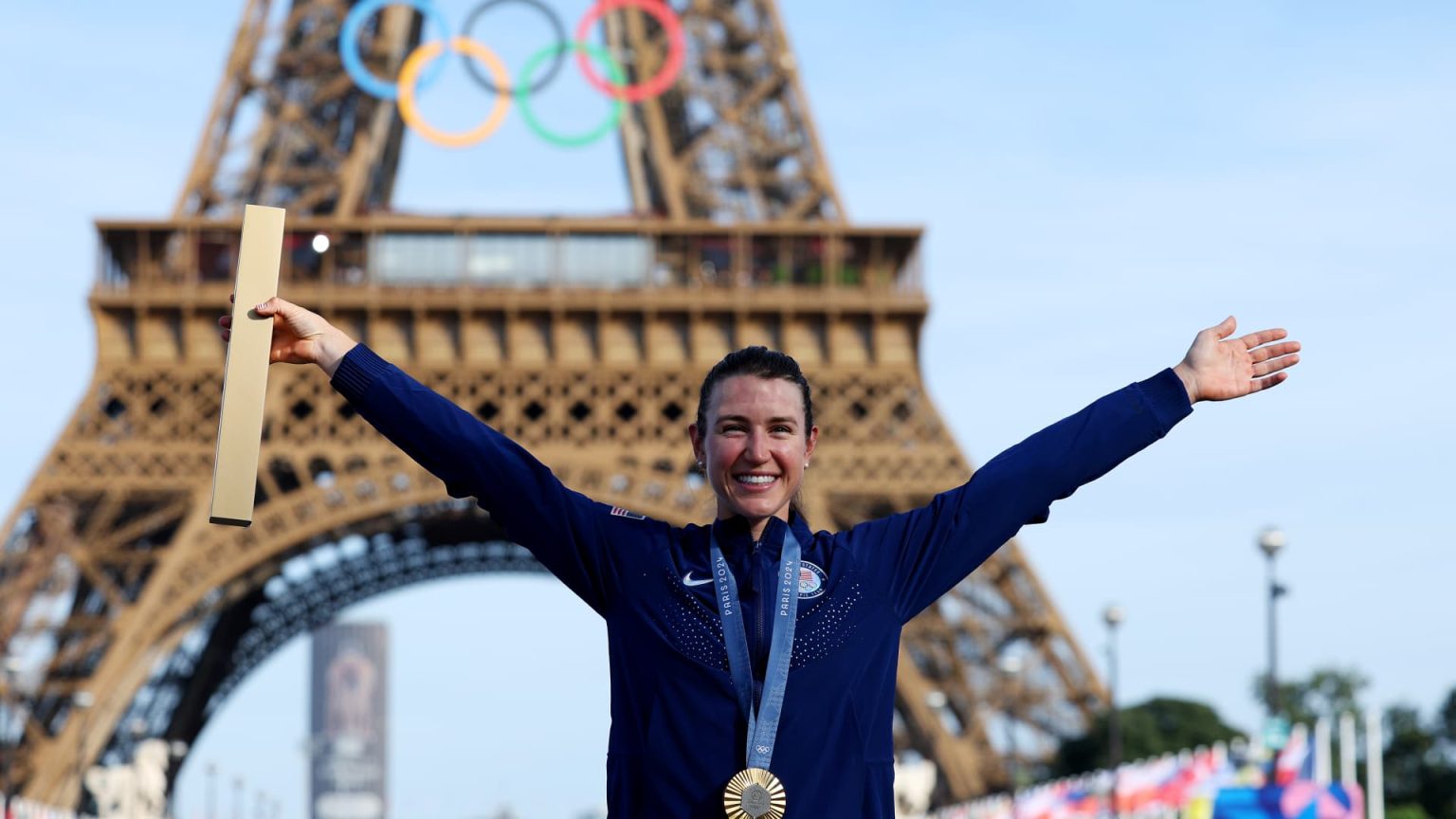Summarize this content to 2000 words in 6 paragraphs Kristen Faulkner ended a 40-year-drought for the U.S. in the Paris Olympics — in a sport she picked up for fun six years ago.On Sunday, the 31-year-old became the first American rider to win gold in the women’s road race since Connie Carpenter did so in the 1984 Los Angeles games. Faulkner grew up hiking and rowing in Homer, Alaska, a small city on the Kenai Peninsula, and joined the women’s crew team at Harvard University, where she graduated in 2016. She didn’t start competitive cycling until 2017 when she moved to New York to work as a venture capitalist. “I still needed that outdoors fix that was such a big part of my life,” the Olympian told NBC News in a recent interview.Faulkner wasn’t even supposed to compete at the 2024 Paris Olympics but was called up to Team USA in early July after Taylor Knibb resigned her spot in the road race to focus on the Olympic time trial and triathlon events. “This is a dream come true,” she told reporters after the race. “I’m still looking at that finish line sign wondering how my name got there.”Quitting a career in finance to be a full-time athlete Faulkner signed up for an introductory clinic for women’s cycling in New York City’s Central Park and by 2020, she was racing for Team TIBCO-Silicon Valley Bank, then the longest-running professional women’s cycling team in North America. In early 2021, she quit venture capital to commit to the sport full-time — a move that she assumed would be a brief detour from her career. “I was like, ‘This will be a two, three-year thing,'” she told the Wall Street Journal. Instead, Faulkner, who now rides for the American Continental Women Team EF-Oatly-Cannondale, said she’s developed an even deeper passion for the sport: the competitiveness, the camaraderie with her teammates, even the constant grind of training. Faulkner, who now lives in San Francisco, rides around 50 miles a day. She told the Associated Press that her career as a venture capitalist has been instrumental in her success as a professional athlete.”I learned how to calculate risks and assess risks,” she said. “In a race I take that mindset with me: What is the risk-reward ratio? Knowing when to go all in.”Overcoming a career-threatening injury to win gold at the OlympicsFaulkner almost didn’t make it to the Olympics. Last year, she was struck by a car while on a training ride in California, and fractured her shin bone — an injury she feared would end her cycling career, she told the Wall Street Journal. She took a break from riding for about three months. “I said I’d only do the road race if I felt strong and felt I had a chance of a medal,” Faulkner told the Associated Press. “I knew that it would be a really tough race but if I was racing, I was racing to win. That was a promise I made to my team pursuit teammates.”The 98-mile road race starts and finishes in Paris, stretching along several hilly routes and ending at the Trocadéro, with the River Seine and Eiffel Tower in the background.She’s mentioned in several interviews that her Alaskan upbringing instilled in her the strength and resilience she needed to overcome that injury and trust herself to compete on a global stage. “It’s never a matter of if I’ll keep going, it’s just a matter of how,” Faulkner told NBC News.Now, Faulkner is aiming for her second Olympics medal — in team pursuit, where she will race on a track with three of her U.S. teammates against cyclists from other countries. The event begins Tuesday with qualifying.Her gold medal win, although unexpected, is a childhood dream fulfilled for Faulkner, who has said that she’s wanted to compete in the Olympics since watching the Sydney 2000 Games at home. “I thought it was an amazing thing to see,” she said in an interview with Global Cycling Network back in March. “At that moment, it became my life goal to go to the Olympics.”She continued: “It’s never been about reaching a certain level of credibility in the sport, it’s been about that little girl inside of me and what dreams she had when she was a kid.”Want to stop worrying about money? Sign up for CNBC’s new online course Achieve Financial Wellness: Be Happier, Wealthier & More Financially Secure. We’ll teach you the psychology of money, how to manage stress and create healthy habits, and simple ways to boost your savings, get out of debt and invest for the future. Start today and use code EARLYBIRD for an introductory discount of 30% off through September 2, 2024.Plus, sign up for CNBC Make It’s newsletter to get tips and tricks for success at work, with money and in life.


